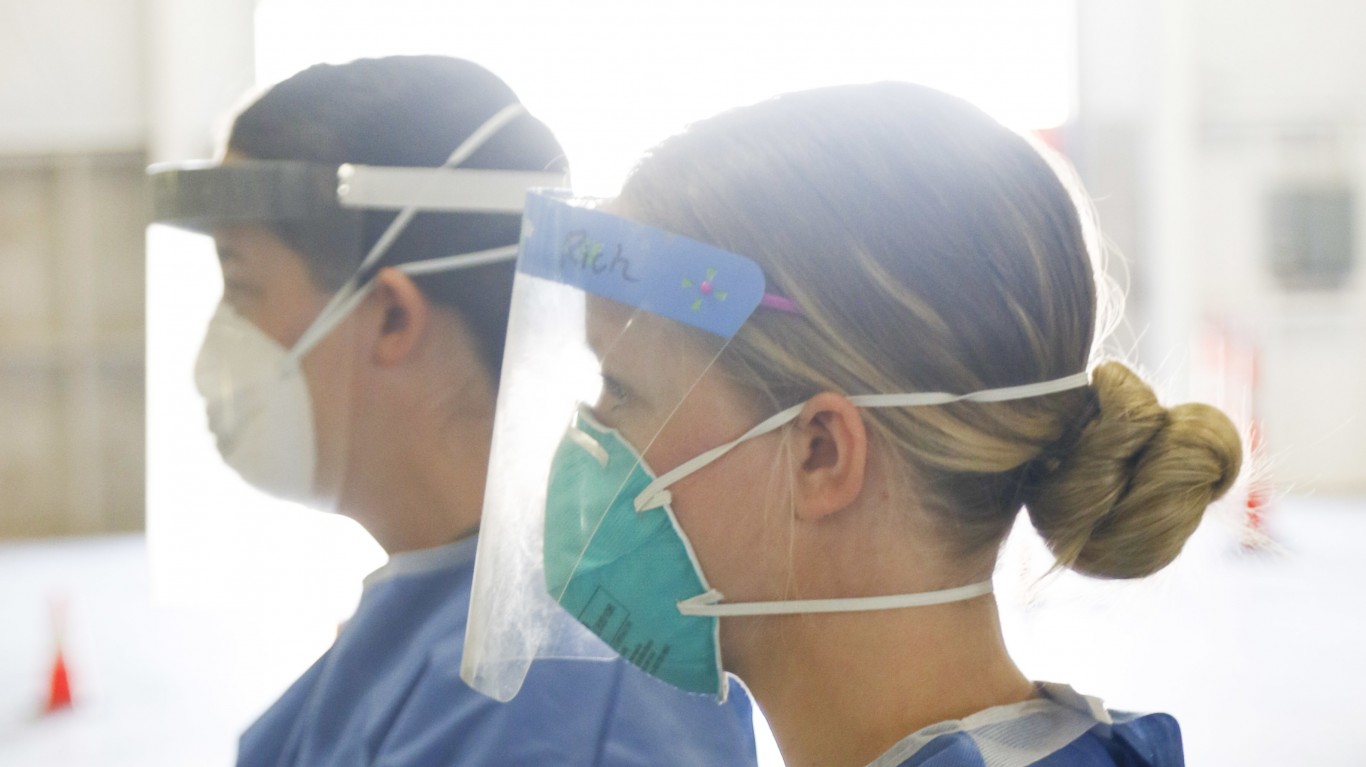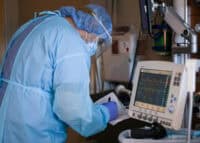
Many investors have forgotten about Owens & Minor Inc. (NYSE: OMI) stock or left it in the garbage heap after a multiyear decline. The coronavirus outbreak turning into the COVID-19 pandemic may have changed that. The company has issued a business update that raised its 2020 fiscal year guidance based on unprecedented demand for personal protective equipment (PPE). While the initial reaction to the news was more than a 70% gain, this is a story that long-term investors may not want to focus on.
It would be easy to say that the surge in demand will not be a secular trend. After all, true pandemics are not the norm. What long-term investors have to consider here is that hospitals, governments, destinations, companies and individuals are going to be major buyers of PPE for years.
O&M announced preliminary results for the second quarter of 2020 signaling that the company has seen improved productivity and increased manufacturing output. The company now expects to report net income in a range of −$0.02 per share to $0.00 per share, but its adjusted earnings (which Wall Street uses) now is expected to be in a range of $0.18 to $0.20 per share. Of the few analysts in the Refinitiv universe who make estimates, the consensus for adjusted earnings was a loss of $0.03 per share.
Based on the demand, O&M raised its full-year outlook for the adjusted earnings to go from $0.50 to $0.60 per share to $1.00 to $1.20 per share. The company also said that it expects currency will have a minimal impact on adjusted net income per share for the full year. Refinitiv’s annual consensus calls for just $0.50 per share.
While this guidance may seem obvious due to the great demand for PPE, long-term investors now are likely to decide that the massive sell-off from 2015 through 2019 marked a trough. While chasing a 70% gain after guidance may seem crazy, his stock fell from over $30 in 2015 to as low under $3 before the latest recovery.
O&M sources from a wide range of global manufacturers. Its MediChoice brand makes protection equipment for operating rooms and doctors’ offices that is the most basic equipment you have probably overlooked in any medical setting. While it is into basic chairs, tables and dispensers, and many other issues around protecting health care workers (and patients) from infection, its services are targeting supplier management, analytics, inventory management and clinical supplies. Some of its medical and surgical offerings include sterilization wraps, surgical drapes, gowns, facial protection products, protective apparel, medical gloves and procedure kits.
The other draw here is that O&M’s market cap is just $900 million, and that is before considering a nearly 70% one-day gain.
Analysts on Wall Street have not exactly been the biggest fans of this company for some time. Robert W. Baird downgraded its rating to Neutral back in May, and Credit Suisse started its rating as Neutral in April. Now we have seen a reaction after news that Robert W. Baird raised its rating back to Outperform and its price target up to $14 from $8. BofA Securities also raised its rating to Buy from Neutral and lifted its price objective to $14 from $8. One person who has been very positive on O&M has been CNBC’s Jim Cramer.
With a model that is not just based on manufacturing, the company’s market cap of less than $1 billion will look tiny compared to its $9.2 billion in revenues from 2019, and that was down from over $9.8 billion in 2018. The company lost money in both years, and now the gains look to be fixed in for a solid 2020. One driving force behind this issue is that all major buyers now have to worry about securing supplies more than they can worry about the price of the goods being purchased. After all, they can always pass any of those price changes on to the responsible parties paying for the medical services.
Investors love a good turnaround story. In 2020, any company that can offer serious solutions for COVID-19 and any future medical pandemics or viral outbreaks is now in high demand.
It may seem hard to chase a gain of 70% to $13.50, but the trading volume of 35.5 million shares even before noon on Tuesday neared 20 times a full average trading day. The stock went as high as $15.40 earlier in the day, and while that is up from a low of under $3 within the past year, those shares are still valued where they were two decades ago.
There are no assurances that this stock will keep rising after such a rapid rise, but many investors with a long-term view now likely will view any pullbacks as opportunities to buy the stock.
Day traders may get burned in the chase higher, but long-term turnaround investors will have a very different view of this company going forward.
Are You Still Paying With a Debit Card?
The average American spends $17,274 on debit cards a year, and it’s a HUGE mistake. First, debit cards don’t have the same fraud protections as credit cards. Once your money is gone, it’s gone. But more importantly you can actually get something back from this spending every time you swipe.
Issuers are handing out wild bonuses right now. With some you can earn up to 5% back on every purchase. That’s like getting a 5% discount on everything you buy!
Our top pick is kind of hard to imagine. Not only does it pay up to 5% back, it also includes a $200 cash back reward in the first six months, a 0% intro APR, and…. $0 annual fee. It’s quite literally free money for any one that uses a card regularly. Click here to learn more!
Flywheel Publishing has partnered with CardRatings to provide coverage of credit card products. Flywheel Publishing and CardRatings may receive a commission from card issuers.
Thank you for reading! Have some feedback for us?
Contact the 24/7 Wall St. editorial team.



